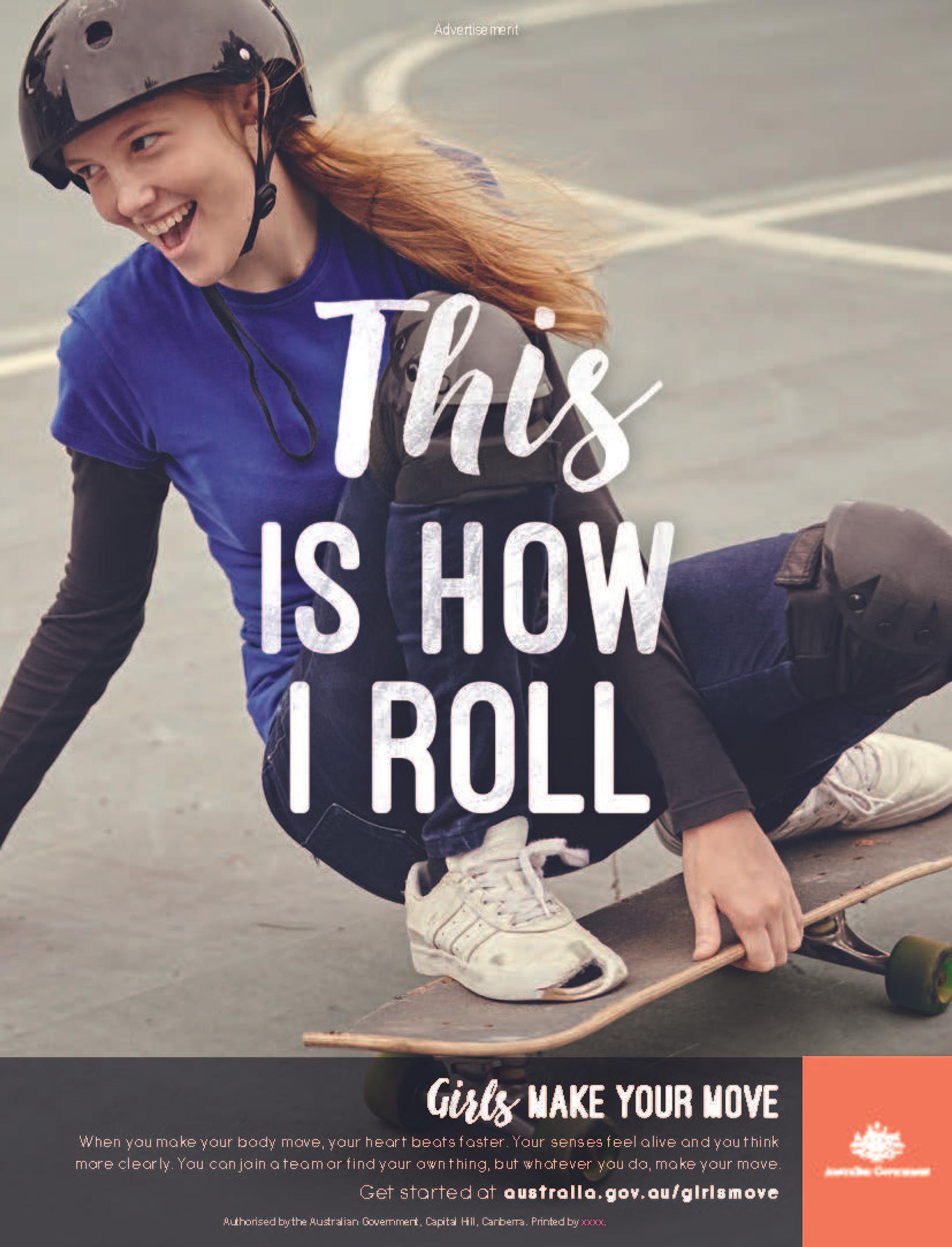Girls Make Your Move

ABOUT Girls MAKE YOUR MOVE
Girls Make Your Move is about inspiring, energising and empowering young women to be more active.
Why girls? Research shows that when young women exercise they do so at a lower level of intensity and have higher amounts of sedentary time than young men. Additionally, young women face a number of additional barriers - girls don’t want to be judged or ridiculed, and they can be self-conscious about how they might look when exercising.
To inform the development of the Girls Make Your Move campaign, research was undertaken on behalf of the department to identify key drivers and barriers to participation in physical activity among young Australian women. The research undertaken by TNS Australia, explored the particular attitudes and behaviours of the primary target audience to inform the strategy and development of the campaign. The insights from this research are outlined in the report.
Quick Facts
- 9 in 10 Australian young people don’t move enough and nearly 70% of Australian adults (i.e. almost 12 million adults) are either sedentary or have low levels of physical activity
- Guidelines recommend at least one hour of physical activity every day
- When young women exercise they do so at a lower level of intensity and have higher amounts of sedentary time than young men.
- Regular physical activity, even of moderate intensity, reduces the risk of diseases such as cardiovascular disease, type II diabetes, osteoporosis, colon cancer, and obesity and injury.
- The benefits of regular physical activity go well beyond those of disease prevention. It can help manage stress, alleviate depression and anxiety, strengthen self-esteem, enhance mood and boost mental alertness.
- Physical activity provides social benefits through social interaction. Among children and adolescents, regular physical activity and exercise has been associated with improved school performance, a greater sense of personal responsibility and group cooperation, and less drug and alcohol consumption.
- Young women experience a number of barriers that prevent them from being as physically active as young men. Research has identified the fear of being judged or ridiculed as a key barrier for young women wishing to be physically active
http://www.health.gov.au/internet/girlsmove/publishing.nsf/Content/about
Featuring Jasmine Richardson, Year 10 Staughton student
